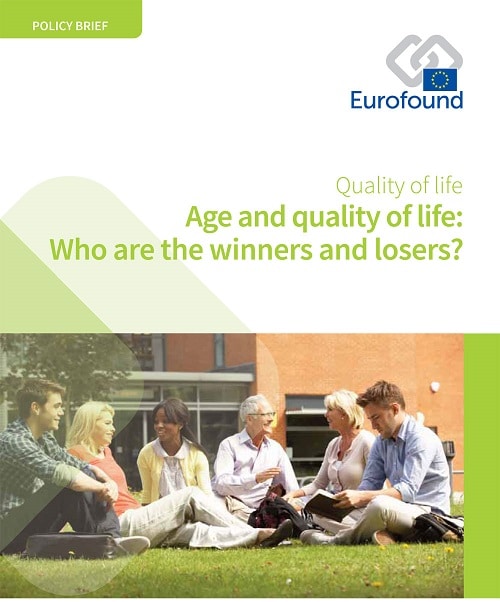
Among the key findings of the reports, we note that there are substantial differences in quality of life across age groups in Europe. Generally, there is a clear divide between the east–west and the north–south: the older generations in general enjoy better quality of life than younger age groups in western Europe, while the younger generations are better off in eastern Europe. Taking the example of social exclusion: in western Europe and the Mediterranean, the feeling of being socially excluded generally rises until middle age and declines towards old age. There is little difference across age groups in eastern Europe, apart from the Balkan cluster (Bulgaria and Romania), where it is slightly higher among people aged 75 and over.
Eurofound lists a couple of policy pointers:
- Recognising the needs of a diverse society;
- Promoting intergenerational fairness;
- Addressing the needs of the oldest old;
- Addressing the needs of young people;
- Improving political participation in eastern Europe.
Most of these policy pointers are actually in line with AGE’s main messages and the recommendations of AGE Manifesto for the EU elections.






